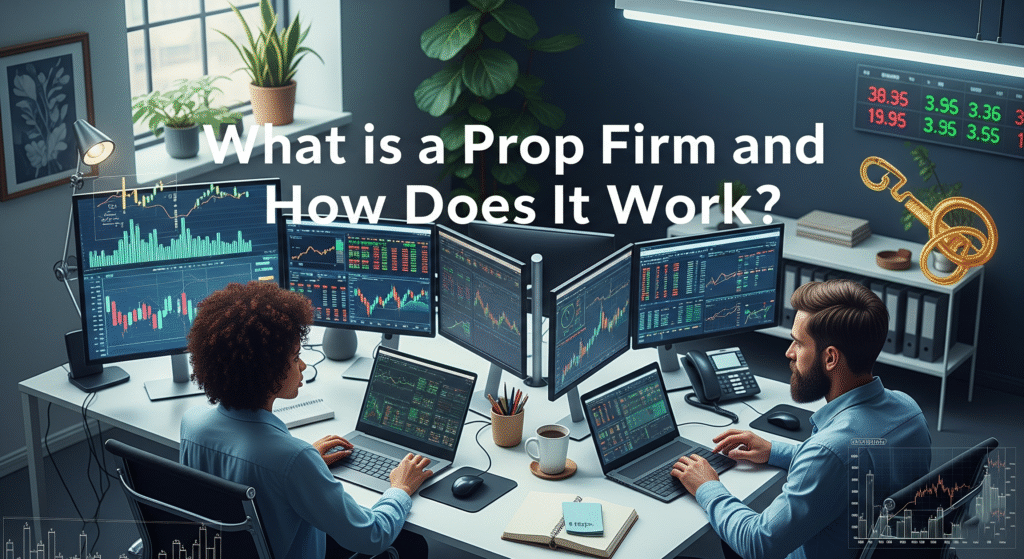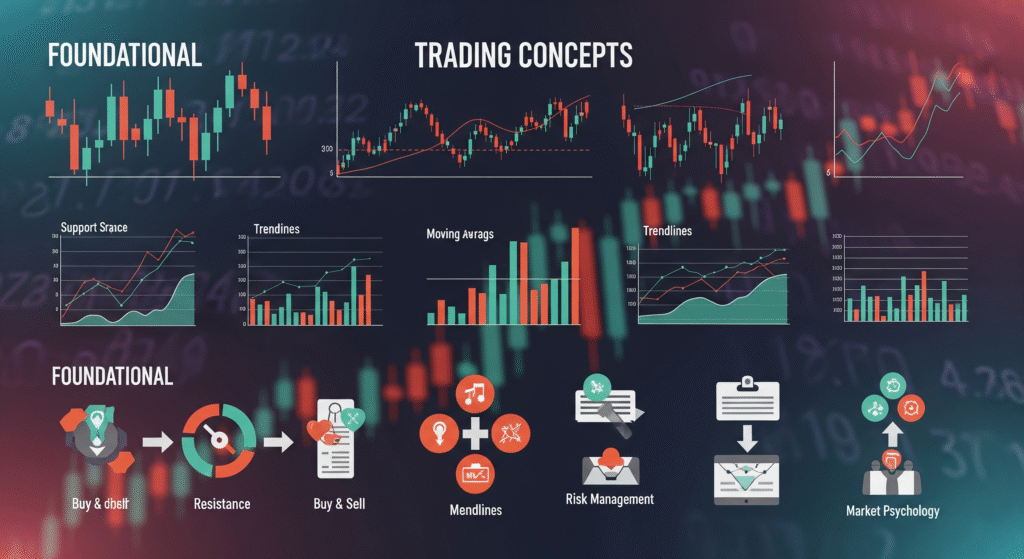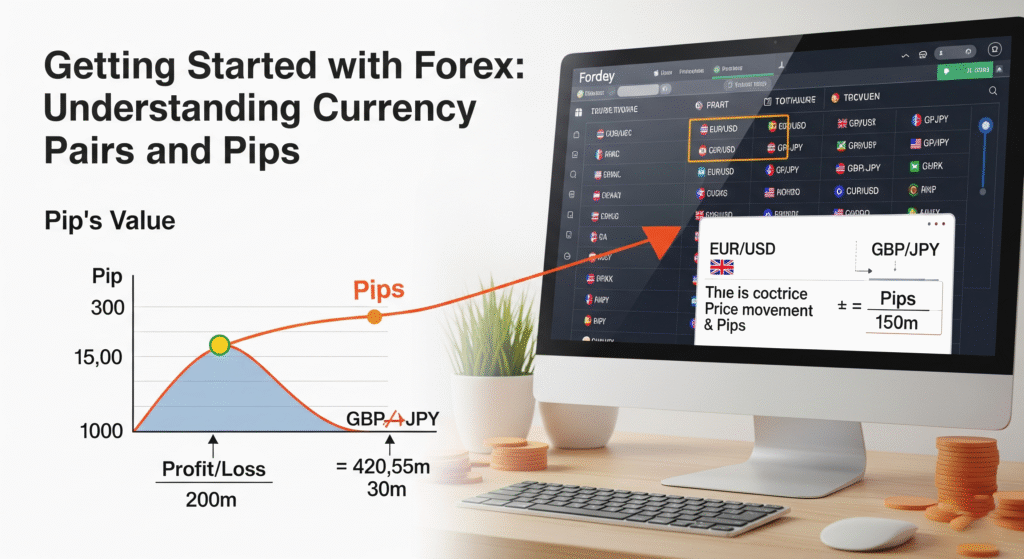He is a Full-time trader and Trading Mentor @ Findependence Trading Academy, with over 18 years of hands-on experience in the stock and forex markets. His journey from being a working professional to achieving financial independence through trading has inspired hundreds of aspiring traders to take control of their financial future.
His trading style revolves around identifying high-probability swing setups in equities and executing precise intraday trades in the forex markets. He treats trading like a business, where rules, clarity, and risk limits aren’t optional—they’re essential. He’s trained over 100+ traders through personalized coaching and structured programs, focusing not just on strategy but on building the mindset and systems that lead to long-term success.
A strong believer in keeping trading simple and practical, He shares real-world lessons drawn from market wins, losses, and years of evolving with changing conditions. He is also the author of “Getting Started with Technical Analysis” and a creator of custom TradingView indicators designed to give traders an edge.
When he’s not charting or mentoring, you’ll find him enjoying a game of Table Tennis.
Table of Contents
What is a Prop Firm and How Does it Work?
If you’re just getting started in trading—especially in the world of forex or futures—you’ve probably come across the term “prop firm” or “funded trader.” It sounds cool, right?
You trade someone else’s money, keep a chunk of the profits, and avoid risking your own capital.
But what does it really mean to be funded by a prop firm?
Is it as glamorous as it sounds—or is there more beneath the surface?
As someone who’s been in the trading world for nearly two decades, I’ve seen prop firms evolve from tight-knit, elite groups trading out of glass-walled offices in Mumbai or London—to the global, remote-access platforms you see today, offering anyone with a laptop and discipline a shot at the big leagues.
If you’re someone who wants to understand all this before jumping in, and you’re eager to learn share market in Kothrud, this guide is for you.
Let’s break it all down in plain English—no jargon, no hype. Just real talk.
What Exactly Is a Prop Firm?
“Prop firm” is short for proprietary trading firm. At its core, a prop firm allows skilled traders to trade using the firm’s capital rather than their own.
The firm “backs” the trader. You pass an evaluation (typically simulating real market conditions), and if you prove you can manage risk and generate returns, you’re given a funded account. From there, you keep a portion of the profits—often 70% to 90%—while the firm absorbs the risk.
So why do they do this? Simple: profit sharing. They make money when you make money. That’s the business model.

Why Prop Firms Appeal to New and Experienced Traders
If you’ve tried trading with your own money, you know the emotional burden. Every loss stings, especially if you’re trading from your salary or savings. Prop firms remove that burden to some extent. You’re risking their money, not yours.
And if you’re a skilled trader but undercapitalized? A prop firm can scale you up. Instead of compounding a $500 account for years, you could get access to a $50,000 or $100,000 account within weeks.
But don’t mistake this for a shortcut. Most traders fail evaluations. The ones who succeed do so because they treat trading like a business—not a game.
How Does a Prop Firm Work?
Let’s break down the typical model in 5 stages:
1. The Evaluation Phase (Challenge/Assessment)
You’ll usually be asked to trade a demo account with strict rules:
- Don’t exceed daily drawdown (e.g., 5%)
- Maintain max loss limits (e.g., 10%)
- Hit a profit target (e.g., 8–10%)
- Follow consistency rules (no gambling!)
You may pay a one-time fee for this evaluation. This isn’t a scam—it covers administrative and risk management costs.
Some firms offer a 2-phase model, while others now provide instant funding with higher rules or reduced payouts.
2. The Funded Phase
Once you pass, you get access to a funded account. This might still be on demo, but profits are “real” in terms of payout.
Here’s where it gets interesting—you now earn real money. If you’re allocated a $100K account and make $5K in a month, your share (say 80%) would be $4,000. Withdrawable.
3. Risk Management and Monitoring
This is where the good prop firms shine. They monitor your risk profile. Trade too aggressively, and you’ll get warnings or lose your account.
Trading isn’t about hitting home runs—it’s about sustainable profitability. Prop firms want traders who can survive the long game.
4. Scaling Up
Some firms reward consistent traders with account scaling. Trade well and follow rules? You might be bumped up to a $200K or $400K account over time.
That’s the dream: build a portfolio of funded accounts, trade conservatively, and create a stable income stream.
5. Payouts
Most firms pay biweekly or monthly via platforms like Deel, Wise, or bank transfers. The first payout may be delayed (for review), but subsequent ones come faster once trust is established.
A-Book vs. B-Book Trading: What You MUST Understand
Now here’s where we dig deeper—because not all prop firms operate the same way.
A-Book Model
In the A-book model, your trades are passed through to the real market. This means the firm actually risks their money on your trades.
It’s the cleanest model, and firms using this model genuinely want you to win—because they win too.
B-Book Model
In the B-book model, your trades stay in a simulated environment. Your profits are paid from the fees other traders pay to enter the challenge—not from market wins.
Sound shady? Not necessarily. It’s more like an insurance model—many lose, few win, and the winners are paid from the collective pot.
But the danger is in how some firms might manipulate conditions—spreads, slippage, execution delays—to limit winners. Not all do this, but it happens.
So which model is better?
- A-book = trader success = firm profit
- B-book = firm keeps challenge fees unless trader wins
The best prop firms today blend both. They may start you on B-book to monitor risk and migrate you to A-book as you prove yourself.
Key takeaway? Choose firms that are transparent, have positive trader reviews, and pay out consistently.
Real Challenges Traders Face in Prop Firms
Psychological Pressure
Trading someone else’s money might reduce fear, but it also brings pressure to perform—especially under strict rules.
Strict Risk Limits
Even good trades can trigger losses if they violate limits. One mistake can disqualify you. Risk management must be flawless.
Evaluation Fatigue
Some traders spend months and thousands attempting challenges—passing only to fail shortly after. It’s mentally exhausting.
Lack of Live Market Exposure
Some firms don’t move traders to live markets. This can affect spreads, fills, and slippage realism—important for long-term traders.
How to Choose the Right Prop Firm
With so many firms out there, how do you decide?
Ask yourself:
- Are payouts consistent? Check reviews on Trustpilot, Discord groups, Reddit.
- What are the rules? Is there a realistic path to success?
- Is the firm A-book or B-book? Or a hybrid?
- Are there hidden fees or unfair resets?
- Is there a community or support system?
Some popular names in the industry include FTMO, MyForexFunds (now paused), The Funded Trader, E8, and True Forex Funds. But always do your own due diligence—firms change policies fast in this space.
Final Thoughts: Is a Prop Firm Right for You?
Prop firms are not a get-rich-quick scheme.
But they can be a golden opportunity—if you’re truly prepared.
If you have:
A proven trading strategy
Strong risk management
The discipline to stick to rules
Then yes, prop firms can unlock capital, scale your potential, and help you build real, consistent income from trading.
But if you’re still learning the ropes, jumping into a challenge too early might burn you out—or worse, teach you to game the system instead of learning to trade the right way.
Want to build your foundation first? Join practical, result-driven stock trading classes near me in Kothrud and develop the mindset and skills that make funded trading worth the risk.
Start with a demo. Track your stats. Know your edge. Then pursue funding with a clear, calm mindset.
Summary: What You Need to Remember
| Concept | Meaning |
| Prop Firm | Funds traders with firm capital for profit sharing |
| Evaluation | Simulated challenge to prove your skills |
| Funded Phase | You trade real capital under strict rules |
| A-book | Trades routed to real market |
| B-book | Trades remain internal; profits from fees |
| Key Traits | Risk discipline, consistency, emotional control |
In the end, trading is not about how much capital you start with—but about how well you manage the capital you’re trusted with.
You don’t need to rush. You need to grow—one trade, one lesson, and one level at a time.
And when you’re ready, the right prop firm might just become the wind beneath your wings.



